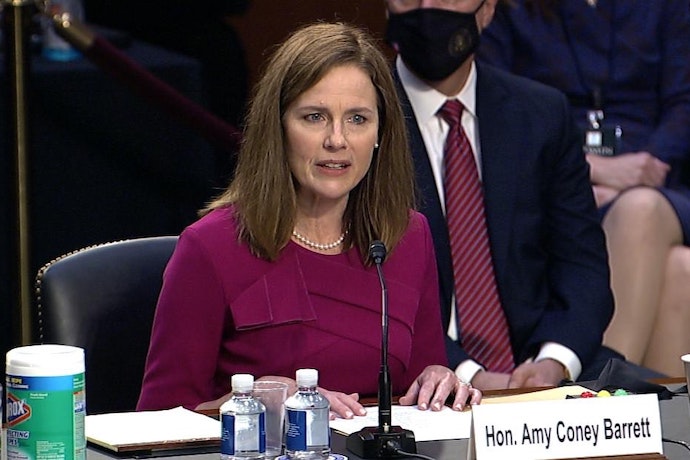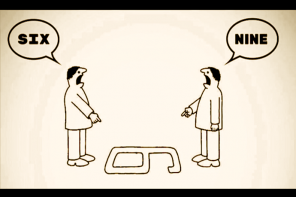Amy Coney Barrett is a woman who has lived out a radical critique of the modern world. She will be less vulnerable to the peer pressure of other judges than many might be, because she has a powerful moral compass, developed out of her own experience in prayer. Yes, she will likely oppose Roe v. Wade if the opportunity arises. Yes, she will likely take conservative positions. But she has a radical streak and an intensely personal God, and we should expect some surprises from her.
Like I said, I’m sure Luhrmann meant well, but she isn’t skeptical enough. It’s one thing to say Barrett comes from People of Praise, “one of many communities formed in the heady days of the late 1960s and early ’70s, when many Americans became hippies and then Christians, drawn by a radical critique of the mainstream world and the sense that by living differently together, they could bring change into the world.” It’s another to presume that will matter to a 48-year-old woman who will help shape American jurisprudence for two generations. Power has a way of changing people.
In Luhrmann’s piece, moreover, I detect a specter haunting the public square when it comes to the Christian faith. How can Christians of all people be alright with taking health care away from 20 million Americans? How can Christians condone taking babies away from emigrating mothers? How can Christians tolerate banning Islam? How can these people, who profess to believe in love and kindness, do such things? The answer comes in two simple parts. One, Christians can be terrible people. Two, Christians can be terrible Christians. Who they say they are might not be the same thing as who they really are. Faith, as we Unitarian-Universalists like to say, doesn’t mean much till it’s in practice. Only then can we assess whether it’s good or bad.
Fact is, for lots of Christians, especially the anarchic sort with whom Barrett has chosen to associate, loving God isn’t the point so much as fearing Him. God, they believe, will damn them to an eternity of pain and suffering if they don’t do as He says. This version of God is petty, vindictive and mean—an outrage to anyone of any faith who worships a loving God—but that doesn’t matter. What matters is obedience. To obey is to be good. To disobey is to be bad. Love is fear. Morality is authority. “A powerful moral compass,” as Luhrmann writes, sounds great, but on whose authority? Since Donald Trump was elected, Barrett has been talked about as a potential Supreme Court pick, and there’s a very good reason for that. She’d be the final step in a decades-long series of steps to not only overturn Roe but also to establish a de facto state religion.
I’m obviously taking a liberal view of conservative Christian theology; but as it happens, it’s a popular one. Most Christians, and most religious Americans, do not and will not worship a vindictive God. They worship one who calls on them to act in love. This theological schism—between worshiping a God of the past prepared to punish you forever and worshiping a God of the present prepared to love you no matter what—is critical to bear in mind. One is pre-modern. One is modern. The entire point of People of Praise, and other separatist groups, is standing in opposition to modernity, which is to say, taking a religious position against democratic (small ‘d’) politics. As Luhrmann said, “Barrett is a woman who has lived out a radical critique of the modern world.”
That’s the problem.
Her religious background makes her predictable.





